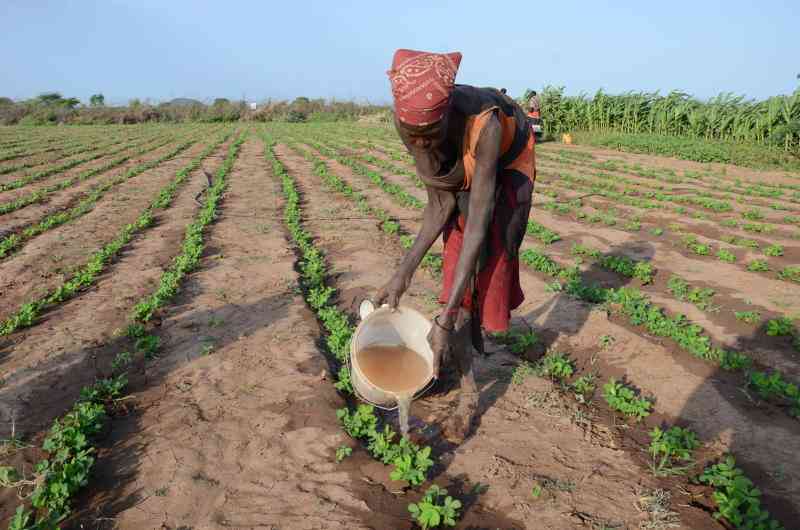
After biting drought cost him hundreds of his cattle and suspected bandits stole the remaining few, Joseph Ekiru, a farmer at the Katilu Irrigation Scheme, turned to groundnut farming to earn a living. Ekiru is among the many farmers, who are finding solace in groundnuts farming after disappointments from nomadic pastoralism. Ekiru says with groundnuts farming, he can now pay school fees for his children. To start off, he got technical support from Egerton University researchers, who found that the crop would thrive in drought-prone Turkana because of the heat and virgin soils. Ekiru says he harvested a solid tonne of groundnuts from his initial two acres and made good money. He has now embarked on doubling production.
"I got the first seed from Egerton University, which was doing research here. Before harvesting, a buyer sought to buy my groundnuts and we signed a contract. The price of unshelled groundnut went for Sh72 per kilo at the farm and shelled produce fetches anything from Sh90 to Sh100," Ekiru explains.